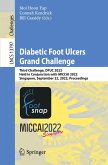In the field of health, digital health has assumed significant importance in recent years due to its contribution to enhancing the overall healthcare system performance in terms of alleviating the ever-growing pressure on the healthcare system, reducing healthcare costs, improving working conditions and job satisfaction of health professionals, improving patients' satisfaction, and providing a holistic view of patient health through access to data and giving patients more control over their health. Therefore, it is of vital importance to understand the overwhelming possibilities and promise it can offer for better health services. Similarly, exploring barriers to digital health engagement is an important tool to guarantee an effective adoption and transition that can meet all healthcare stakeholders' objectives. Integrating Digital Health Strategies for Effective Administration explores recent writings and original research findings in the field of digital health with a special focus on digital health adoption strategies and challenges. This book is intellectually situated between digital health management and digital health technologies. Covering topics such as digital health literacy, machine learning, and procedural law, this premier reference source is an essential resource for app developers, healthcare administrators, healthcare professionals, students and educators of higher education, researchers, and academicians.








